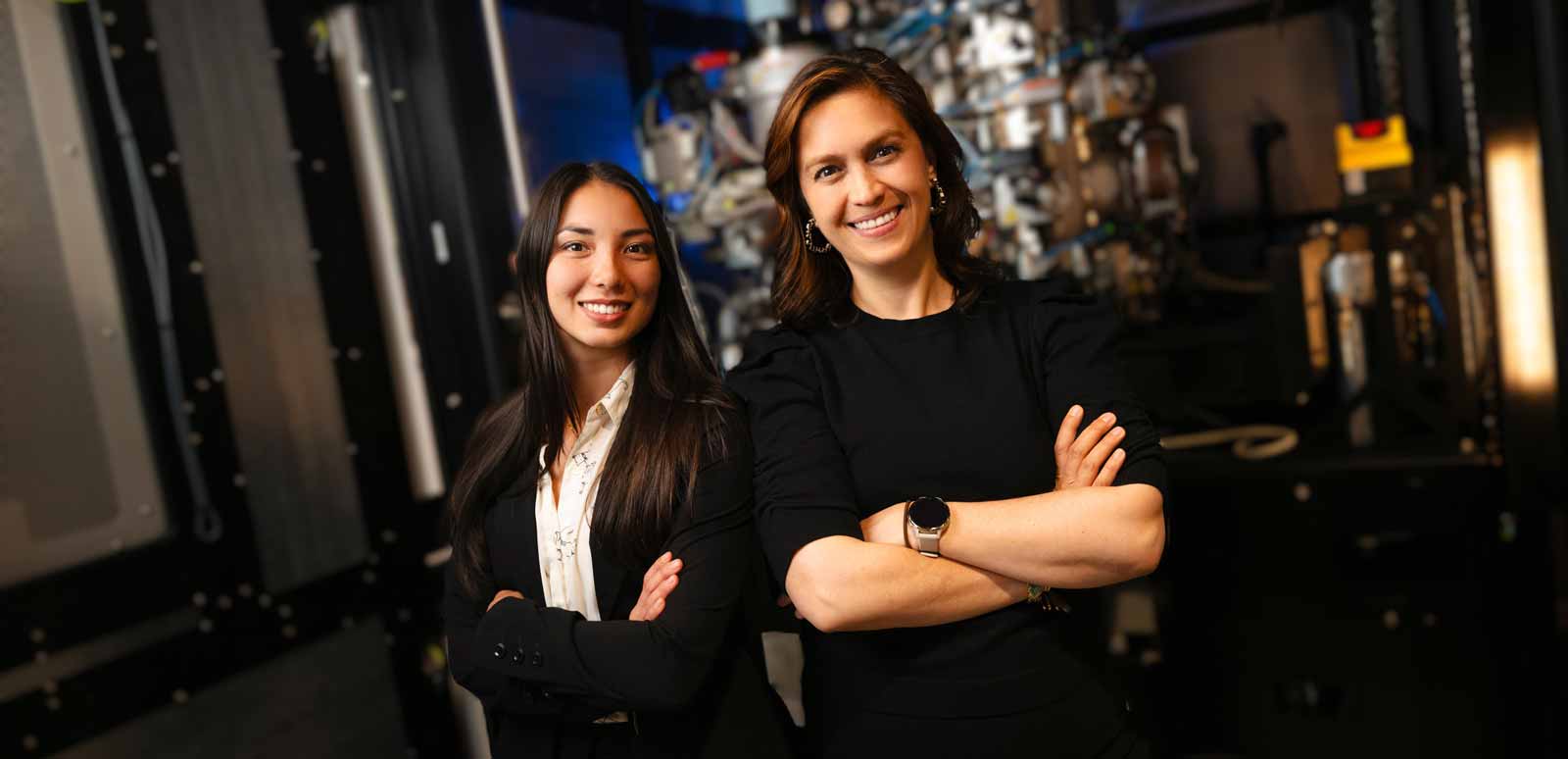Madeleine Duquette and Elizabeth Villa Awarded HHMI Gilliam Fellowship
Innovative program was established to recognize mentorship and diversity in scientific training
August 14, 2024
By Mario Aguilera

BioSci graduate student Madeleine Duquette and Professor Elizabeth Villa.
Erik Jepsen, University Communications
The Howard Hughes Medical Institute has named UC San Diego School of Biological Sciences Graduate Student Madeleine Duquette and Professor Elizabeth Villa as recipients of a 2024 Gilliam Fellowship.
They are one of 50 graduate student-adviser pairs selected this year through the nationwide program and the only named in the San Diego region. Members of this year’s Gilliam Fellowship cohort are based at 43 institutions across the United States. Each student-adviser pair is awarded $53,000 of support each year for up to three years of the student’s dissertation research.
According to HHMI, the Gilliam Fellows Program was established to recognize the importance of mentorship in developing new scientific leaders. Fellows join a vibrant community and are offered leadership training, professional development and opportunities to engage with and learn from peers, program alumni and HHMI scientists. Their advisers also join a cohort of peers, participate in HHMI’s intensive one-year mentorship skills development course and receive support to promote healthy and inclusive graduate training environments at their home institution.
“This year’s Gilliam Fellows and their advisers are not only working at the cutting edge of scientific discovery, but they’re also forging new pathways for others to do the same,” says Blanton Tolbert, HHMI’s vice president of science leadership and culture. “Their dedication to creating environments in which researchers of all backgrounds can thrive will have an impact on science for generations to come.”
Villa is a professor in the Department of Molecular Biology and an HHMI Investigator. Her lab conducts research using new cryo-electron microscopy (cryo-EM) and cryo-electron tomography (cryo-ET), which use high powered microscopes to take images of samples at low temperatures. These technologies are regarded as the most advanced tools for studying foundational biological systems and the details of the structures of cells.
Duquette, a rising third-year graduate student, is using cryo-ET to investigate issues related to the ongoing HIV-1/AIDS epidemic. Drug resistance is common for people with HIV-1, which still lacks an accessible cure. Duquette is focusing on a trimeric glycoprotein found on the surface of HIV-1 virus particles called Env, a primary target for antibody therapeutics and vaccine development. She is using cryo-ET technology to resolve the structures of the HIV-1 Env glycoprotein to better analyze and understand the process of viral HIV fusion.
“I will be able to collect thousands of images in the cellular context using cryo-electron tomography,” said Duquette. “These images can help us to better understand the molecular mechanisms of HIV-1 infection and advance the field in developing treatments.”
Other members of the 2024 Gilliam Fellows cohort include scientists working in a wide range of biomedical and life science areas including brain development and wiring, CRISPR-based epigenetic editors and the molecular etiology of mood disorders.
Now in its 19th year, HHMI created the Gilliam Fellows Program in honor of the late James H. Gilliam, Jr., a charter trustee of HHMI. The program recognizes that advisors play an integral role in helping their students realize their high potential. Gilliam advisers participate in a year-long mentorship development course led by facilitator-scholars from HHMI’s Scientific Mentorship Initiative.
The full list of 2024 HHMI Gilliam Fellows is available on their website.
— With information from HHMI
